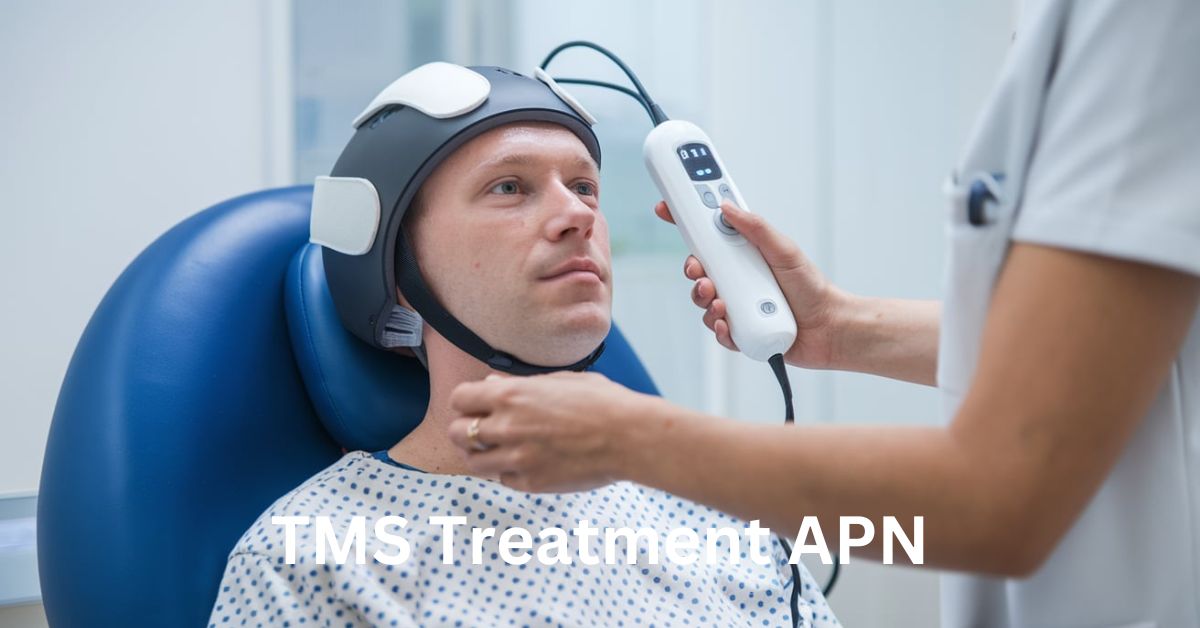Understanding TMS Treatment APN: A Comprehensive Guide

Transcranial Magnetic Stimulation (TMS) is a cutting-edge treatment option for individuals suffering from various mental health conditions, including Major Depressive Disorder (MDD), Obsessive-Compulsive Disorder (OCD), and anxious depression. This article delves into the details of TMS treatment, specifically focusing on TMS Treatment APN (Advanced Practice Nurse). We will explore its efficacy, benefits, the role of APNs in delivering this treatment, and offer insights that go beyond typical sources of information.
What is TMS Treatment?
Transcranial Magnetic Stimulation (TMS) is a non-invasive procedure used to stimulate specific areas of the brain. The treatment involves placing a magnetic coil near the scalp, which generates magnetic pulses. These pulses penetrate the brain and activate neurons, which can help alleviate symptoms of mental health disorders. TMS is FDA-approved and has been recognized for its effectiveness in treating conditions like Major Depressive Disorder (MDD) and Obsessive-Compulsive Disorder (OCD).
How Does TMS Work?
The basic principle behind TMS involves the use of magnetic fields to stimulate nerve cells in the brain. The procedure is typically performed in a clinical setting and lasts around 30 to 40 minutes per session. The magnetic pulses delivered by the coil are thought to enhance the brain’s ability to regulate mood and reduce symptoms of depression and other mental health disorders.
Key Points:
- Non-Invasive: TMS does not require surgery or anesthesia.
- Outpatient Procedure: Patients can typically resume their normal activities immediately after treatment.
- Targeted Therapy: Focuses on specific brain regions associated with mood regulation.
The Role of APNs in TMS Treatment
Advanced Practice Nurses (APNs) play a crucial role in the administration and management of TMS treatment. They are highly trained professionals with specialized education and experience in mental health care. Their involvement in TMS treatment includes:
- Assessment and Diagnosis: APNs are skilled in evaluating patients’ mental health conditions and determining their suitability for TMS treatment.
- Treatment Administration: APNs are trained to operate TMS equipment and ensure the treatment is administered correctly.
- Patient Monitoring: They monitor patients for any side effects or adverse reactions during and after the treatment.
- Patient Education: APNs provide patients with information about what to expect during and after the procedure, as well as offer support throughout the treatment process.
Benefits of TMS Treatment
TMS treatment offers several benefits, particularly for individuals who have not responded well to traditional therapies. Some of the key benefits include:
- Effectiveness for Treatment-Resistant Conditions: TMS has shown promise for individuals with MDD who have not found relief through medication or therapy.
- Minimal Side Effects: Compared to medications, TMS typically has fewer side effects, with the most common being mild discomfort at the site of the coil.
- No Need for Anesthesia: TMS does not require sedation, making it a safer option for many patients.
- Quick Recovery: Patients can return to their daily activities immediately after treatment.
Potential Side Effects
While TMS is generally well-tolerated, some individuals may experience side effects, including:
- Headache: Mild headaches are a common side effect, often alleviated with over-the-counter pain relievers.
- Scalp Discomfort: Some patients may feel discomfort or a tapping sensation at the site of stimulation.
- Seizures: Although rare, there is a small risk of seizures, particularly in individuals with a history of seizure disorders.
TMS vs. Traditional Treatments
Comparing TMS to traditional treatments like antidepressant medications and psychotherapy reveals several distinctions:
- Medications: While antidepressants can be effective, they often come with side effects and may take several weeks to show results. TMS, on the other hand, can provide quicker relief with fewer side effects.
- Psychotherapy: Cognitive Behavioral Therapy (CBT) and other forms of psychotherapy are effective for many, but some patients may not achieve the desired results. TMS offers an alternative or complementary treatment option.
Success Rates and Outcomes
Research indicates that TMS treatment can be highly effective for many patients. Studies have shown that a significant percentage of individuals experience a reduction in depressive symptoms and improved overall functioning. Success rates can vary based on individual factors, including the severity of the condition and the patient’s response to treatment.
Important Considerations:
- Treatment Duration: TMS typically involves multiple sessions over several weeks.
- Ongoing Management: Some patients may require maintenance sessions to sustain the benefits of TMS treatment.
Insights and Future Directions
TMS treatment continues to evolve, with ongoing research exploring its potential applications beyond depression and OCD. Future studies may expand its use to other mental health conditions and refine the techniques to enhance efficacy.
Emerging Trends:
- Combination Therapies: Combining TMS with other treatments, such as medication or psychotherapy, may offer even greater benefits.
- Personalized Approaches: Tailoring TMS treatment to individual patient profiles could improve outcomes and reduce side effects.
Related FAQs
What is the cost of TMS treatment?
The cost of TMS treatment can vary based on location, provider, and insurance coverage. On average, a course of TMS treatment may range from $6,000 to $12,000. Many insurance plans now cover TMS treatment, so it is advisable to check with your insurance provider.
How long does TMS treatment take to show results?
Many patients begin to notice improvements in their symptoms after a few weeks of TMS treatment. Full benefits may take several weeks or even months to become apparent.
Is TMS treatment covered by insurance?
Insurance coverage for TMS treatment varies. It is increasingly covered by many insurance plans, especially for individuals with Major Depressive Disorder who have not responded to other treatments. Verify coverage with your insurance provider before starting treatment.
Can TMS treatment be used in conjunction with other therapies?
Yes, TMS can be used alongside other treatments, such as medications and psychotherapy. Combining therapies may enhance overall effectiveness and provide more comprehensive care.
Are there any specific qualifications required for an APN to administer TMS?
APNs must undergo specialized training to administer TMS treatment. This training ensures they are proficient in operating the equipment, assessing patient needs, and managing any potential side effects.
How do I find a qualified provider for TMS treatment?
Look for licensed mental health professionals or clinics that specialize in TMS treatment. Ensure they have trained APNs and are accredited by relevant medical boards or organizations.










